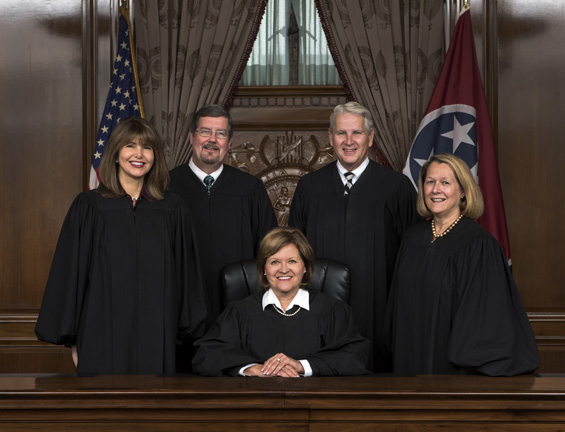Greeneville, Tenn. – The Tennessee Supreme Court will bring oral arguments to Niswonger Performing Arts Center next week as part of the Court’s SCALES program, as high school students from four counties get a personal look at how the Court operates.
High school students from eleven area schools are expected to participate in the event January 7 as students have had the opportunity to study a real case before the state Supreme Court and will hear oral arguments between the parties in front of the five-member panel of justices.
More than two dozen local attorneys have volunteered their time to assist the students as they learn about the court system and the particulars of the case they will hear. This is accomplished by reading case summaries prepared especially for the program and learning legal terminology. Teachers are provided study manuals to also assist students in developing an understanding of the process. Students will hear one of two cases set for oral arguments that day.
The event is sponsored by the 3rd Judicial District, with the support of Scott M. Niswonger, Dr. Nancy Dishner of the Niswonger Foundation, and the Greene County Bar Association. Chancellor Douglas T. Jenkins is the presiding judge of the 3rd Judicial District, which comprises Greene, Hamblen, Hancock, and Hawkins counties. Other trial court judges in the district are John F. Dugger, Alex E. Pearson, and Thomas J. Wright. Also participating in the event is the Greene County Sheriff's Department and the Greeneville Police Department.
The Court typically hears cases in Nashville, Knoxville or Jackson, but several times each year, they bring the Court’s docket to another community for SCALES, which stands for Supreme Court Advancing Legal Education for Students.
The program’s purpose is to provide an opportunity for students to experience firsthand the path a Supreme Court case follows and the effort required to bring a case before the state’s highest court. More than 25,000 students from 460 high schools and colleges have participated in the program since its inception in 1995.
One criminal and one civil case will be on the Supreme Court’s docket on January 7. One group of students will hear State v. Larry Jereller Alston. This appeal involves the Knox County Criminal Court’s setting aside jury verdicts of guilty and dismissal of charges of several violent crimes including kidnapping and burglary. The case has had a lengthy legal history, going before the Court of Criminal Appeals twice, which both times reinstated most of the guilty verdicts against the defendant. The issue the Supreme Court will be addressing is whether the jury should have been given more specific instructions about how the various crimes the defendant was accused of related to one another for purposes of reaching a verdict on all the charges.
The second case is a civil lawsuit, Anne Payne v. CSX Transportation, Inc., in which Payne’s husband, Winston Payne, brought suit against his former employer CSX under the Federal Employers’ Liability Act (“FELA”), alleging that CSX negligently exposed him to asbestos, diesel fumes, and radioactive materials in the workplace causing his injuries. Payne worked for CSX for 40 years. In 2005, he was diagnosed with lung cancerand he died in 2010. A Knox County jury returned a verdict against CSX for $8.6 million, but said Payne’s 26 years as a smoker caused 62% of the harm he suffered.
The trial court then instructed the jury that, under FELA, its finding that CSX violated a safety regulation meant that plaintiff would recover 100% of the damages found by the jury, rather than the 38% that the jury anticipated. The court sent the jury back for further deliberations and they returned with an amended verdict of $3.2 million.
The court later granted CSX’s motion for a new trial, citing “instructional and evidentiary errors.” The case was then assigned to another trial judge, who then granted CSX’s request to end the case in their favor without another trial. On appeal, The Court of Appeals sent the case back to the first trial court for review and ordered it to enter a judgment for either of the two amounts. The COA also said the grant of a new trial and the subsequent trial court actions were inappropriate.
On Wednesday, the Supreme Court will hear about multiple issues in the Payne case related to the trial court’s interaction with the jurors, the actions of the trial court judges, and whether the Court of Appeals acted properly in sending the case back to the trial court with the instructions it provided.
Tennessee Supreme Court oral arguments are open to the public and will begin at 9 a.m.
The following schools will have students participating:
- Cherokee High School
- Chuckey-Doake High School
- Clinch High School
- Greeneville High School
- Hancock County High School
- Morristown-East High School
- Morristown-West High School
- North Greene High School
- South Greene High School
- Volunteer High School
- West Greene High School



